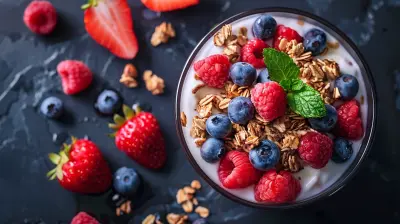The Role of Protein in Muscle Repair and Strength Building
11 September 2025
When it comes to building strength and repairing muscles, one nutrient stands out from the rest—protein. Whether you're a gym enthusiast, an athlete, or simply someone looking to stay healthy, protein plays a crucial role in keeping your muscles strong and functional. But why is protein so important for muscle recovery and growth? And how can you make sure you're getting enough of it? Let's break it all down.
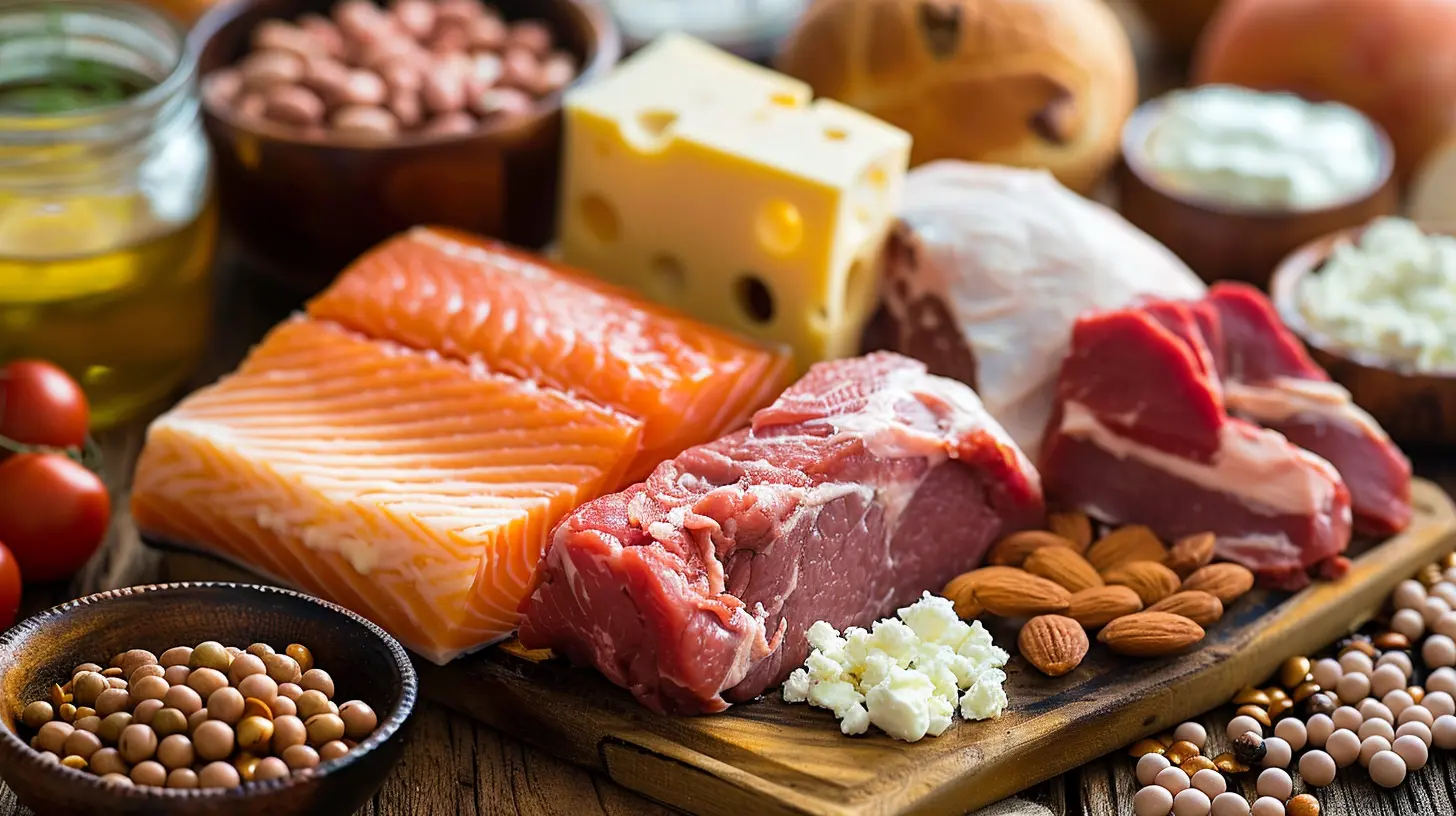
Why Is Protein Essential for Muscles?
Think of your muscles as a house. Every workout you do—whether it's lifting weights, running, or even yoga—puts stress on your muscle fibers, causing tiny tears. These tears need to be repaired, and protein is like the construction crew that comes in to rebuild and strengthen the structure. Without enough protein, this repair process slows down, leading to fatigue, weakness, and even muscle loss over time.The Science Behind Muscle Repair
Whenever you exercise, especially during resistance training or high-intensity workouts, your muscles experience microtears. This is completely normal—it’s actually the signal that tells your body to build stronger muscles. But without adequate protein, your body won’t have the necessary building blocks (amino acids) to repair and grow new muscle tissue.This is why post-workout nutrition is so important. Your muscles are like a sponge, ready to absorb nutrients, and protein helps kickstart the repair process.
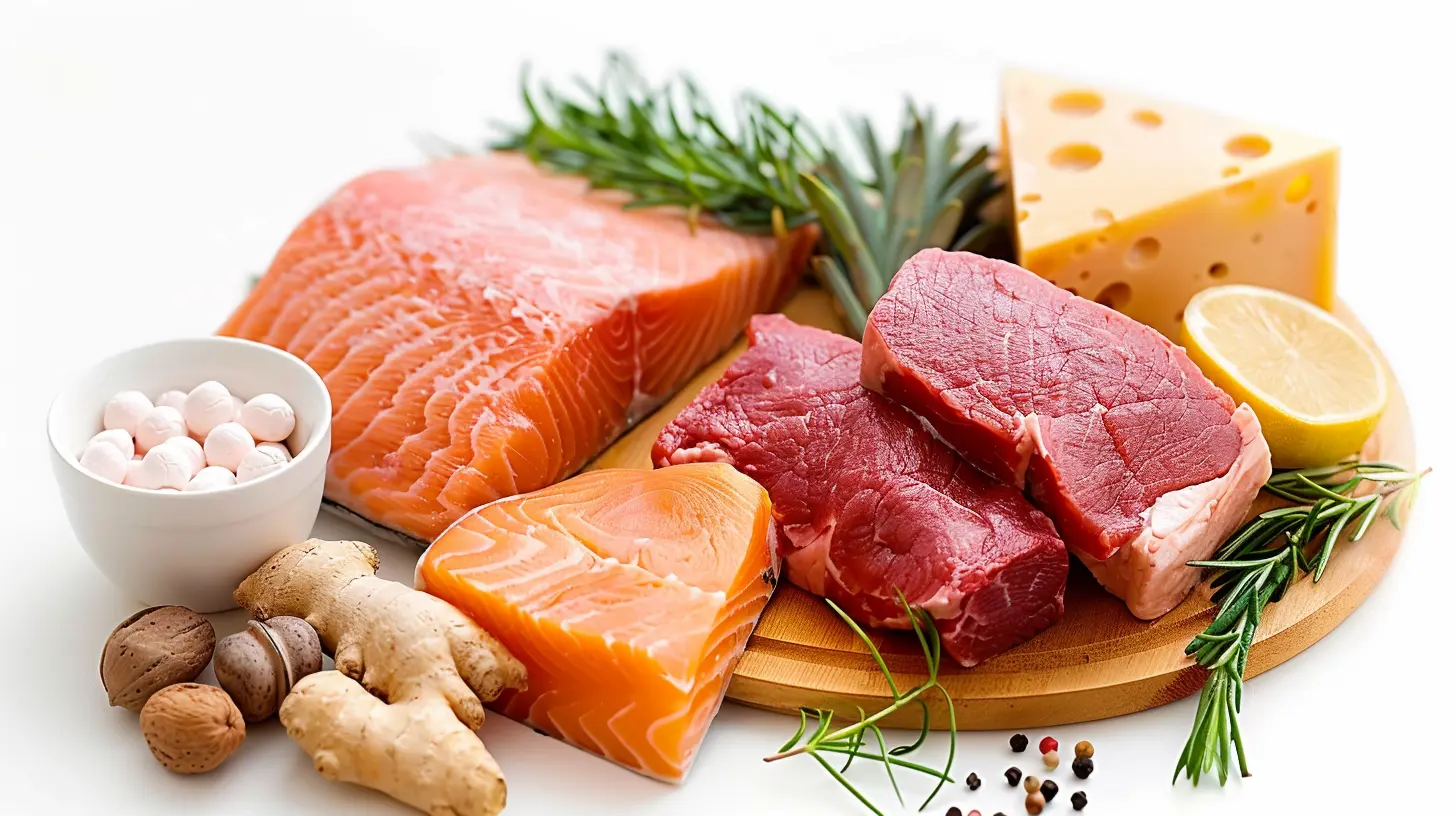
How Does Protein Help in Strength Building?
1. Protein Provides Essential Amino Acids
Proteins are made up of amino acids, often called the building blocks of muscle. Some amino acids can be produced by your body, but others—known as essential amino acids—must come from your diet. These essential amino acids play a key role in muscle recovery, reducing soreness, and promoting strength development.2. Protein Enhances Muscle Protein Synthesis (MPS)
Muscle Protein Synthesis (MPS) is the process where your body repairs damaged muscle fibers and forms new ones, resulting in stronger, more resilient muscles. Consuming protein after a workout stimulates MPS, allowing for faster recovery and muscle growth. This is why many fitness experts recommend a protein-rich meal or shake within 30-60 minutes post-exercise.3. Protein Prevents Muscle Breakdown
Your body is constantly balancing between muscle protein breakdown (MPB) and muscle protein synthesis (MPS). If you don’t consume enough protein, muscle breakdown can outweigh synthesis, leading to muscle loss. This is especially important for those on a calorie deficit or older adults who naturally experience muscle degeneration (sarcopenia).4. Protein Supports Strength and Performance
Strength isn’t just about bulging muscles; it’s about endurance, stability, and power. Protein helps enhance muscle recovery, reduce fatigue, and improve overall performance, allowing you to train harder and see better results.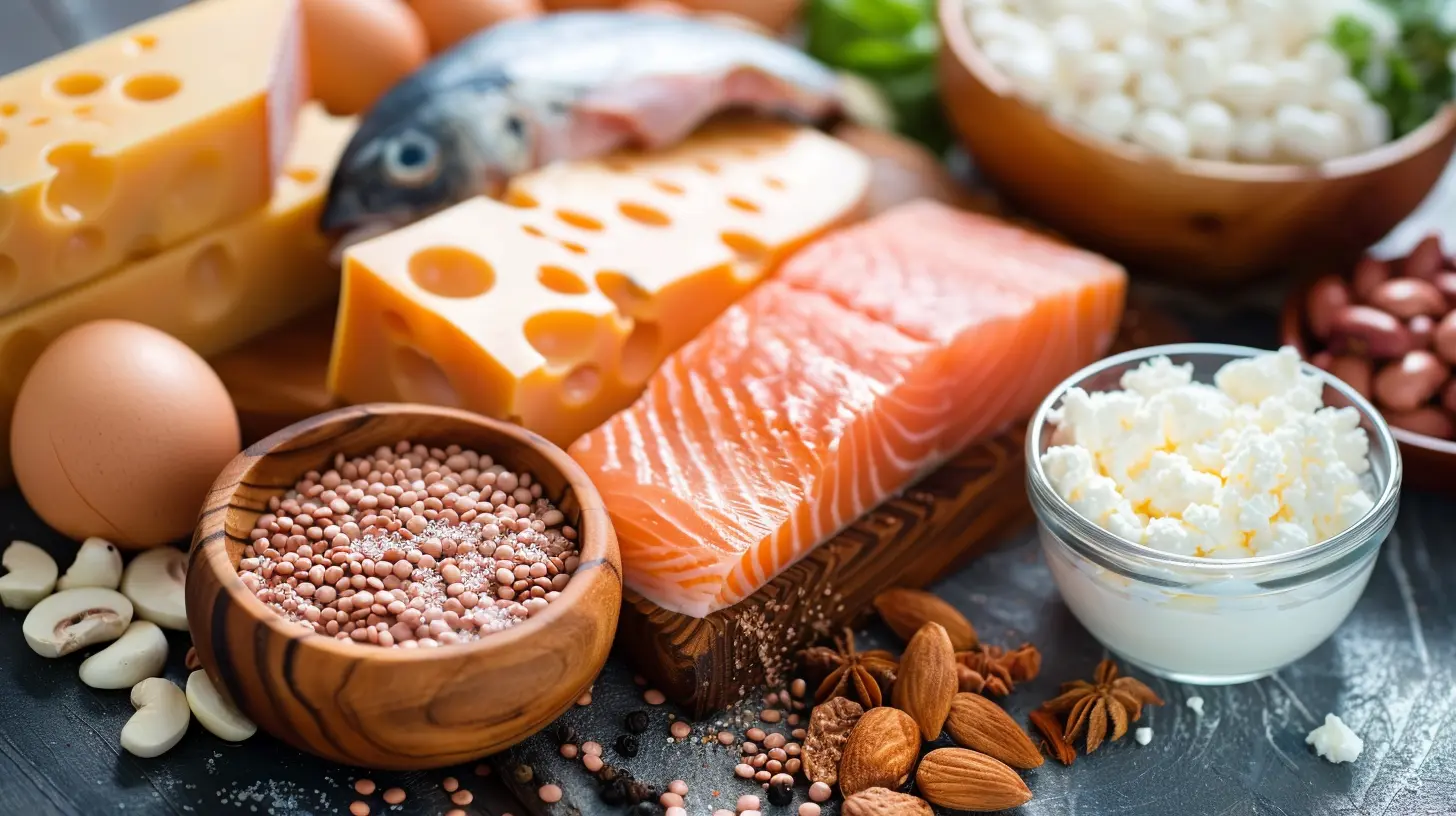
How Much Protein Do You Really Need?
This is one of the most common questions in fitness. The answer? It depends on factors like age, activity level, and fitness goals. Here’s a general guideline:- Sedentary individuals: ~0.8g of protein per kg of body weight
- Active individuals & athletes: ~1.2 - 2.0g of protein per kg
- Bodybuilders or those looking to gain muscle: ~1.6 - 2.2g of protein per kg
For example, if you weigh 70 kg (154 lbs) and you’re active, you should aim for about 84-140g of protein per day for optimal muscle repair and growth.
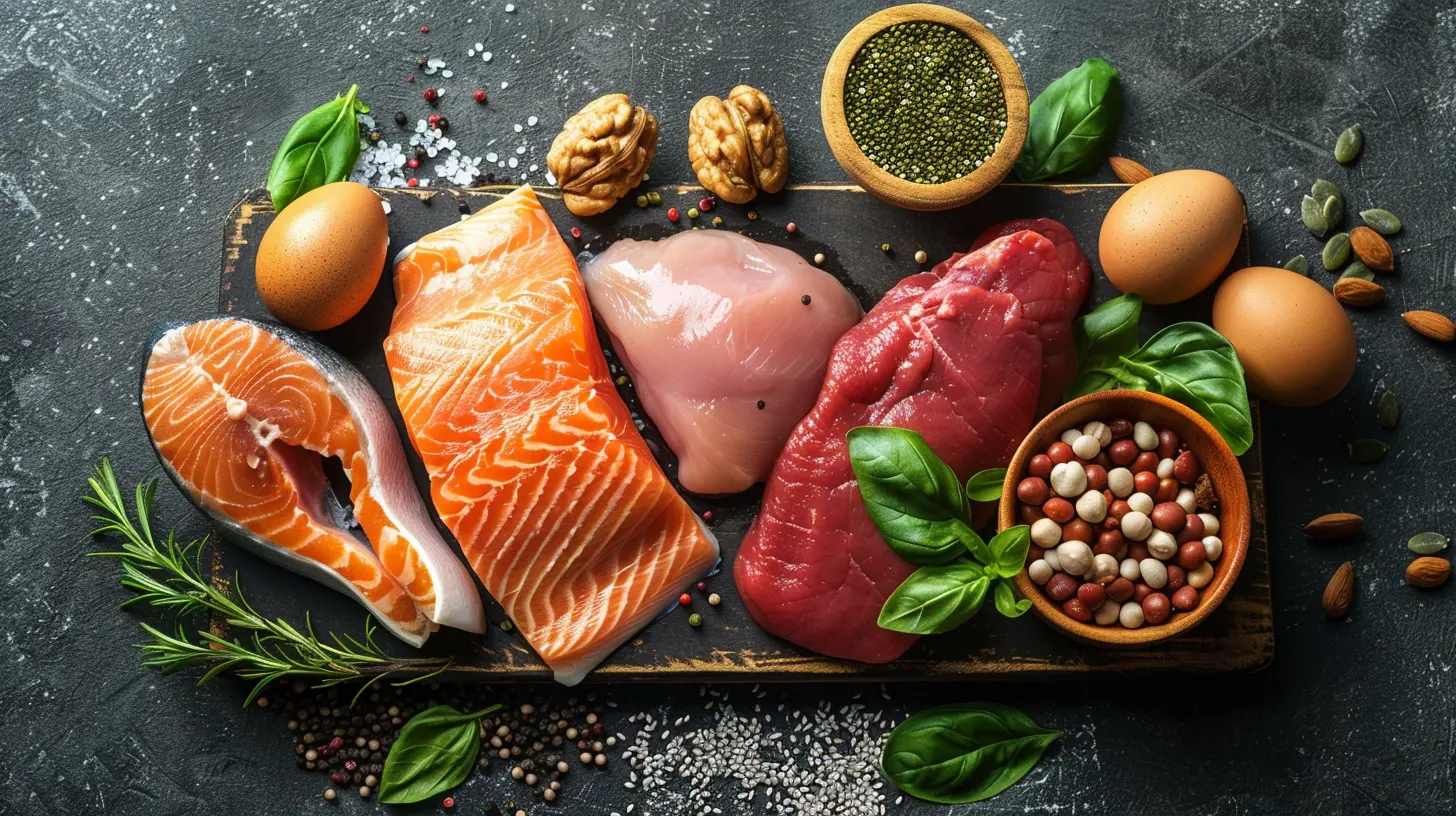
Best Sources of Protein for Muscle Repair and Strength
Not all protein sources are created equal. Some provide a complete profile of essential amino acids, while others may be lacking in certain key nutrients. Here are some of the best protein sources for muscle recovery and strength building:Animal-Based Protein Sources
These tend to have a high biological value (meaning your body absorbs them well) and contain all essential amino acids.- Chicken & Turkey – Lean and rich in muscle-building amino acids
- Eggs – A powerhouse of nutrients with a perfect amino acid profile
- Beef – High in protein and iron, essential for muscle strength
- Fish – Salmon, tuna, and cod provide protein along with omega-3 fatty acids for muscle inflammation relief
- Dairy (Greek Yogurt, Cottage Cheese, Milk, Whey Protein) – High in protein and great for muscle recovery
Plant-Based Protein Sources
For those who prefer plant-based diets, you can still meet your protein needs by including a variety of protein-rich foods.- Lentils & Beans – Packed with protein and fiber
- Tofu & Tempeh – Excellent meat alternatives
- Quinoa – One of the few plant-based complete proteins
- Nuts & Seeds (Almonds, Chia seeds, Pumpkin seeds) – Great for snacking and muscle repair
- Plant-Based Protein Powders (Pea, Hemp, Rice Protein) – Convenient and effective
When Should You Eat Protein for Maximum Benefits?
Timing your protein intake can make a significant difference in muscle recovery and growth.1. Pre-Workout Protein
Eating a small protein-rich snack before your workout can enhance performance and reduce muscle breakdown. Good options include:- A protein smoothie
- Greek yogurt with nuts
- A boiled egg with whole-grain toast
2. Post-Workout Protein
Your muscles are most receptive to protein shortly after exercise, making this the optimal window for consumption. Aim for 20-40g of protein within 30-60 minutes post-workout.Great post-workout protein sources:
- Whey protein shake
- Chicken breast with rice
- Cottage cheese with fruit
3. Protein Before Bed
Muscle recovery doesn't stop when you sleep. Consuming slow-digesting protein, like casein (found in dairy), before bed can help support overnight muscle repair. A great option is a small bowl of cottage cheese or a casein protein shake.
Common Myths About Protein and Muscle Growth
1. More Protein = More Muscle
While protein is essential for muscle growth, eating excessive amounts won’t magically make you stronger. Your body can only use a certain amount of protein per meal, and any excess gets stored as fat or excreted.2. Protein Shakes Are a Must
Protein shakes are convenient, but they’re not essential. If you’re getting enough protein from whole foods, you don’t need supplements. They’re just a handy way to meet your protein target.3. Only Bodybuilders Need a High-Protein Diet
Even if you’re not a bodybuilder, protein is vital for muscle maintenance, metabolism, and overall health. Everyone—from athletes to office workers—benefits from an adequate protein intake.Final Thoughts
Protein is the ultimate fuel for muscle repair and strength building. Whether you’re an athlete aiming to bulk up or just someone looking to stay fit, ensuring that you consume enough high-quality protein is key to faster recovery, reduced soreness, and improved strength. So, next time you hit the gym, don’t forget to feed your muscles the nutrients they need to rebuild stronger than before.all images in this post were generated using AI tools
Category:
Strength TrainingAuthor:

Laura Hudson
Discussion
rate this article
1 comments
Winter McMichael
Great article! Understanding protein's crucial role in muscle repair and strength building is essential for anyone pursuing fitness goals.
October 7, 2025 at 2:58 AM

Laura Hudson
Thank you! I'm glad you found it helpful. Protein truly is vital for achieving fitness goals!


